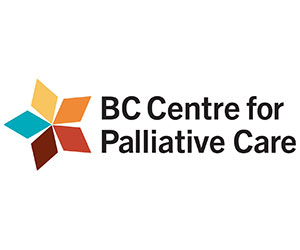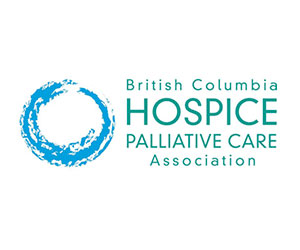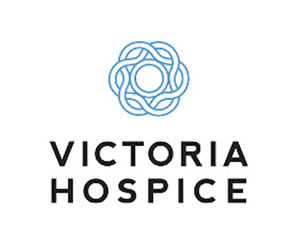Frequently Asked Questions
Learn more about HCABC and read the first-of-its-kind report—Hospice Care in British Columbia: The Path Forward.
Question About the Contents of the Report
What is the vision for hospice care in BC?
A future where hospice organizations are meaningful and recognized partners in the provision of accessible, adaptable, accountable, and sustainable hospice care that improves the quality of living and dying for individuals with serious illnesses across British Columbia.
What is the definition of hospice care within the Report?
For the purposes of the Report, hospice care refers to services provided by staff and volunteers of community-based, not-for-profit organizations with mandates for supporting individuals with life-limiting illnesses and their caregivers and bereaved.
What strengths were identified in hospice care today in BC?
Hospice organizations are uniquely positioned to play a leading role in a revitalized hospice care sector in BC. The 71 not-for-profit community hospice organizations are geographically spread out across rural, remote, and urban areas of British Columbia and already operate with a deeply ingrained person-centered philosophy. In addition, the highly qualified professionals on staff operate with the support of a vast network of well- trained volunteers. These volunteers include retired health-care professionals, educators, and family members of persons who receive or have received hospice care.
What gaps were identified in hospice care today in BC?
Although hospice organizations in BC are currently facing a number of challenges that prevent them from taking on a more meaningful partnership role in the hospice care sector. First, there is little coordination across organizations, regions, and the formal health care system, resulting in a lack of standards for services and means to enable the exchange of knowledge and resources. Additionally, relationships with the government and regional health authorities are inconsistent and lack clear policy directives for formal collaboration and integration. Furthermore, funding sources are limited and unstable, leading hospice organizations to compete against one another rather than work together.
What was the key recommendation of the report?
The key recommendation detailed in the report is the formulation of HCABC with representatives from hospice organizations, government, health authorities, professional organizations, researchers, health care facilities, charities, and patient and family groups, to accelerate the improvement of hospice care in BC.
What are the 10-steps of the path forward outlined in the report?
- Design a strong, integrated structure for the Alliance over the next few years.
- Secure reliable funding for hospice organizations.
- Advocate for a provincial policy and strategy for hospice palliative care in BC.
- Establish a common definition of hospice palliative care in BC.
- Establish standards and an accreditation program for hospice palliative care to ensure quality and consistency in hospice services across the province.
- Raise public awareness of the importance of person-centered care and advance care planning education provided by hospice organizations in BC.
- Establish core competencies and a provincial education program for hospice staff and volunteers.
- Develop an effective volunteer engagement strategy.
- Leverage technology to facilitate networking, training, and knowledge exchange.
- Explore and facilitate opportunities for meaningful partnerships between hospice organizations with underserved communities in the province.
Who are the proposed stakeholders of HCABC?
It is proposed that representatives from hospice organizations, government, health authorities, professional organizations, researchers, health care facilities, charities, and patient and family groups will be identified as stakeholders of the Alliance.
What are the proposed guiding principles for hospice care in BC?
- Hospice care services must be accessible to all British Columbians impacted by a serious or life-limiting illness
- Hospice care services must adopt upstream or preventative interventions that enable person-centered care and improve quality of life
- Hospice care services must be culturally competent and culturally safe
- Hospice organizations must demonstrate accountability for the quality of their hospice care services
- Hospice care services must be sustainable
- Hospice care services must be fully integrated into the health care system
Question About the Development of the Report and Participants
Who are the healthcare professionals that drove the delivery of the report?
Representatives of the British Columbia Centre for Palliative Care (BCCPC), British Columbia Hospice Palliative Care Association (BCHCPA), Sovereign Order of St. John of Jerusalem, Knights Hospitaller (SOSJ), Victoria Hospice, and Vancouver Island Federation of Hospices (VIFoH) joined together to form the Provincial Hospice Working Group (PHWG) early in 2019. Member of the PHWG led and managed this initiative as volunteers who are committed to improving hospice care and the quality of lives in BC.
How was the information for the report gathered?
The information used to create the report was gathered using the following methodologies:
- Relevant academic articles and grey literature that address the needs of persons living with a serious or life-limiting illness and their family or friend caregivers were researched.
- Administrators of hospice organizations completed a survey on the current state of the sector in September 2019 (BCCPC). First of its kind in BC.
- Stakeholders in the health care system and community, specifically palliative care clinicians, physicians, and researchers attended a roundtable, hosted by the PHWG, in November 2019.
Your Voice Counts
The formation of HCABC is the result of input from individuals who care about those facing serious illnesses across the province. Its very success relies on increased support from individuals, families, loved ones, health care experts, health authorities, governments, and key stakeholders.





